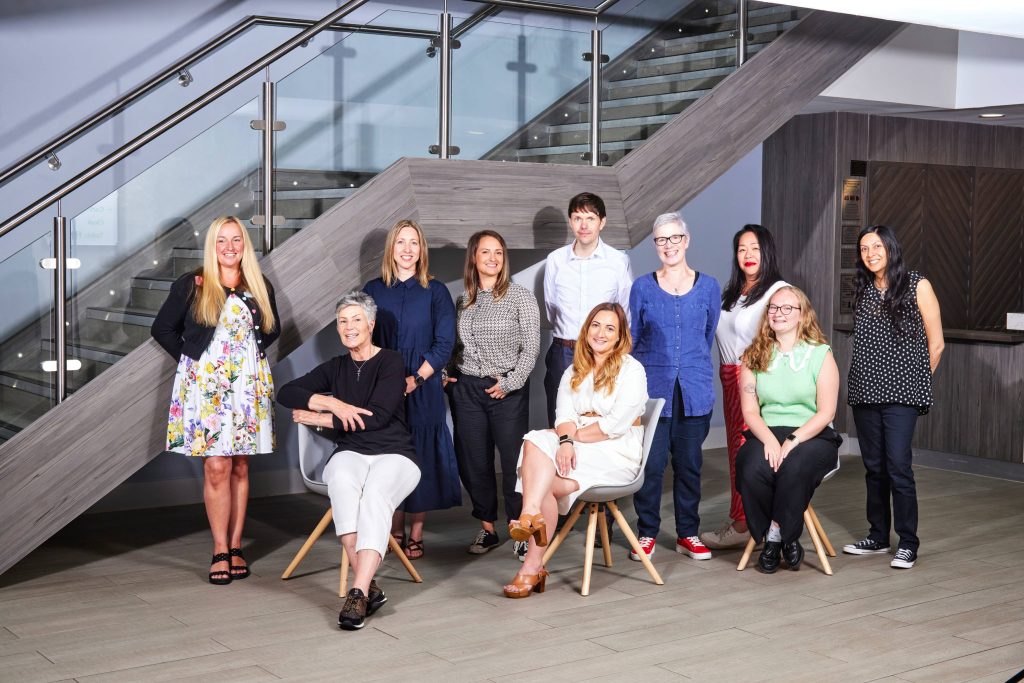Key wellbeing initiatives
The survey enabled us to develop a plan, which is updated each year. The plan contains areas of focus which are most important to staff members. Below are some of the initiatives that have taken place:
- Changed internal structures and policies – we recognised some of our policies and procedures were creating problems. There was lack of clarity in some areas that created frustration and confusion. As a result, we created a suite of new policies and also created a staff handbook. Some key areas we reviewed or created new policies included:
- Flexible and hybrid working – we had standard working hours 9am-5pm in the Manchester office. We recognised this created stress and pressure and didn’t support people to create a healthy work life balance. We created a more flexible approach built on trust, which by far has had the greatest positive impact on wellbeing.
- Review of approach to reward and recognition – we have reviewed our whole approach to reward and recognition and made a number of changes. We implemented a new pay review structure to ensure fairness and transparency.
- Wellbeing budget and resource – as part of our internal wellbeing service, we are lucky to have wellbeing experts in the charity who have supported this work. However, we also set a wellbeing budget for the year and bring in other experts when appropriate to work with the team. The wellbeing budget is spent on a range of things, from small exercise equipment to wellbeing lunches.
- Invested in training for our Senior Management – we recognised that our Senior Management Team played a pivotal role in driving forward our plans. We focused on building a solid high-functioning SMT which then in turn has allowed us to create this across the team. Their support and commitment were essential in creating a culture of wellbeing within the organisation.
- Time for the team – particularly since covid, we have tried to make time for the team to be together. We now have an annual team away day and make time for regular wellbeing sessions, led by both external and internal experts. We have also created space on our monthly team meeting agendas which focus on being open and honest so we can work through any issues as a team. In these meeting we discuss individual team priorities and try to identify crunch points, so that the wider team can support, or at the very least have an awareness.
- Developed a training and development plan for staff – we recognised that people felt more valued when we invested in their personal development. As ‘learning’ is a key pillar in the five ways to wellbeing, we knew that this would be good from an individual wellbeing perspective and in turn, the wider organisation.
- Implemented the HSE Survey – more recently, we have also utilised the Health and Safety Executive (HSE) survey to assess and improve our workplace conditions, ensuring the physical and mental wellbeing of our team. This delves deeper than our own survey and has provided us an opportunity as a team to discuss workload and crunch points.
- Focus on communication – effective communication is fundamental to wellbeing. We have now started to focus on training in communication techniques to enhance interpersonal skills. We also encourage people to speak up if they are having a difficult time, and ensure that an element of monthly 1-2-1s is a wellbeing check-in.


